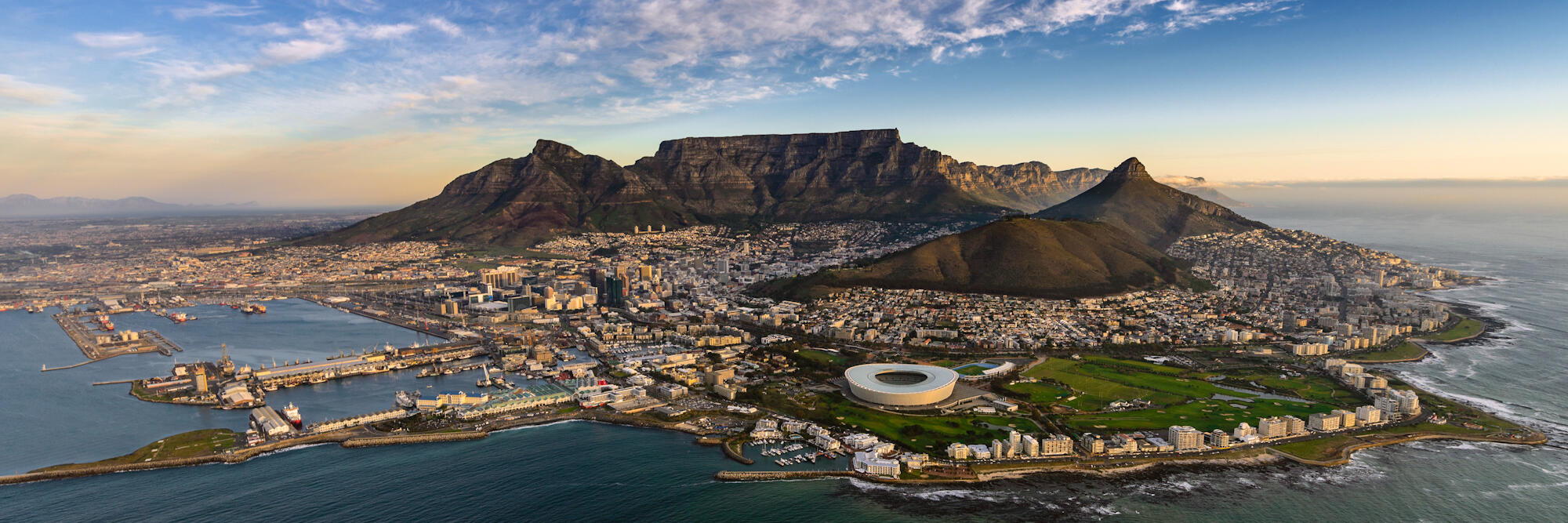 Tom Pitman lived in Cape Town for six years from 2002, and although now back in London he visits regularly on business trips and misses the quality of life, lifestyle, people and scenery of the city.
Tom Pitman lived in Cape Town for six years from 2002, and although now back in London he visits regularly on business trips and misses the quality of life, lifestyle, people and scenery of the city.
For more information about expat life in Cape Town, visit the Expat Arrivals city guide to Cape Town or read more expat experiences in South Africa.
Q: Why did you move to Cape Town?
A: I had just got married, and we were keen to live abroad for a few years, before the onslaught of children, schools etc. We decided on Cape Town as my business required being in an English-speaking country, ideally in a similar time zone. That pretty much narrowed it down to Cape Town, and clearly the beach, mountains and incredible quality of life were also a big draw.
Q: Was it easy to get a work permit?
A: I got a work permit before I left the UK, which was a requirement at the time if I remember correctly. Most people get their companies to organise their work permit, but I got an "own business" work permit and organised this myself through the consulate in London and the Department of Home Affairs in Cape Town. This does take some time but provided you have a business which contributes to the South African economy and employs locals you are likely to get a work permit. Many people use a visa agency to facilitate.
Q: What did you do about medical insurance?
A: We got BUPA International health insurance before leaving, which as it turned out was a great choice as my wife got pregnant within a month of arriving, and you needed to be with BUPA for 10 months before you qualified for cover for pregnancy and childbirth The insurance more than paid for itself.
Q: Did you take any financial advice?
A: No, but I would advise anyone to do so before leaving, depending on circumstances.
Q: How does the quality of life compare against home?
A: It's cheap by London standards, most expats have a large house with a pool, perhaps looking over the ocean, there is no traffic, lots of domestic help, first-class medical care, vineyards, mountains, glorious beaches, golf, surfing, good weather for most of the year…
Q: What are the schools like?
A: As good as any good private London school. Great sports and good value by comparison. The school year starts in January, rather than September and the curriculum is a bit behind London schools, so children start reading later etc. Some parents opt for the international school which follows the English curriculum. Our children were too young for it to matter.
Q: Was it easy making friends?
A: We arrived with the intention of mixing with locals, but inevitably ending up seeing a lot of fellow Brits. Although there are lots of Brits in Cape Town, the expat community feels quite small. You just need one or two contacts and you'll be away. Having children at school makes it easier to meet other parents, as in any city.
Q: Anything you miss about London?
A: Family and friends. You do appreciate home more when you haven’t been there for a bit, and going back relish in lots of things you take for granted: the culture, architecture, nightlife, good beer, log fires, and most of all the English.
Q: What is the accommodation like in Cape Town?
A: Most expats live in the Southern Suburbs, the City Bowl or on the Atlantic Seaboard, and each has their own advantages. The houses in the Southern Suburbs are generally larger, with a decent garden, and many of Cape Town's best schools are in this area.
Houses in the City Bowl can be a bit more compact but still large by London standards, usually with a pool. This area is the most central and near to the best restaurants etc, and you avoid the morning traffic you get from the suburbs to the city centre.
The Atlantic Seaboard includes the beach suburbs of Greenpoint, Seapoint, Clifton and Camps Bay; housing is more expensive in general, but you get amazing sea and mountain views and are still only 10 minutes from the city centre. Being from London we chose to live in Camps Bay and enjoy a beach lifestyle rather than the more sedate living of the Southern Suburbs. There is a very international community in these beach suburbs.
Good rental houses are in short supply, and you should start looking as soon as possible, particularly on the Atlantic Seaboard where many houses and apartments are rented at expensive short-term holiday rates. Houses and apartments range in standard and there is a wide range of rent depending on the quality. Check out some of the estate agent websites, including Seeff.
Q: Is safety a concern?
A: Yes, but I can never remember feeling threatened in Cape Town, and we didn't suffer even petty crime in six years living there (and nor did any of our close friends), but we lived in a good area and were, I guess, lucky. Most people do have a horror story to tell, usually second-hand, and the safety risks are very real. I feel it is understandable given the massive disparity between very poor and very rich. Prospective expats should give the safety issue real thought before moving, particularly with families, however I believe the risks are more than outweighed by the benefits of living in Cape Town. If you make the decision to go, keep your eyes open, be sensible and take common-sense precautions.
~ Interviewed December 2009



